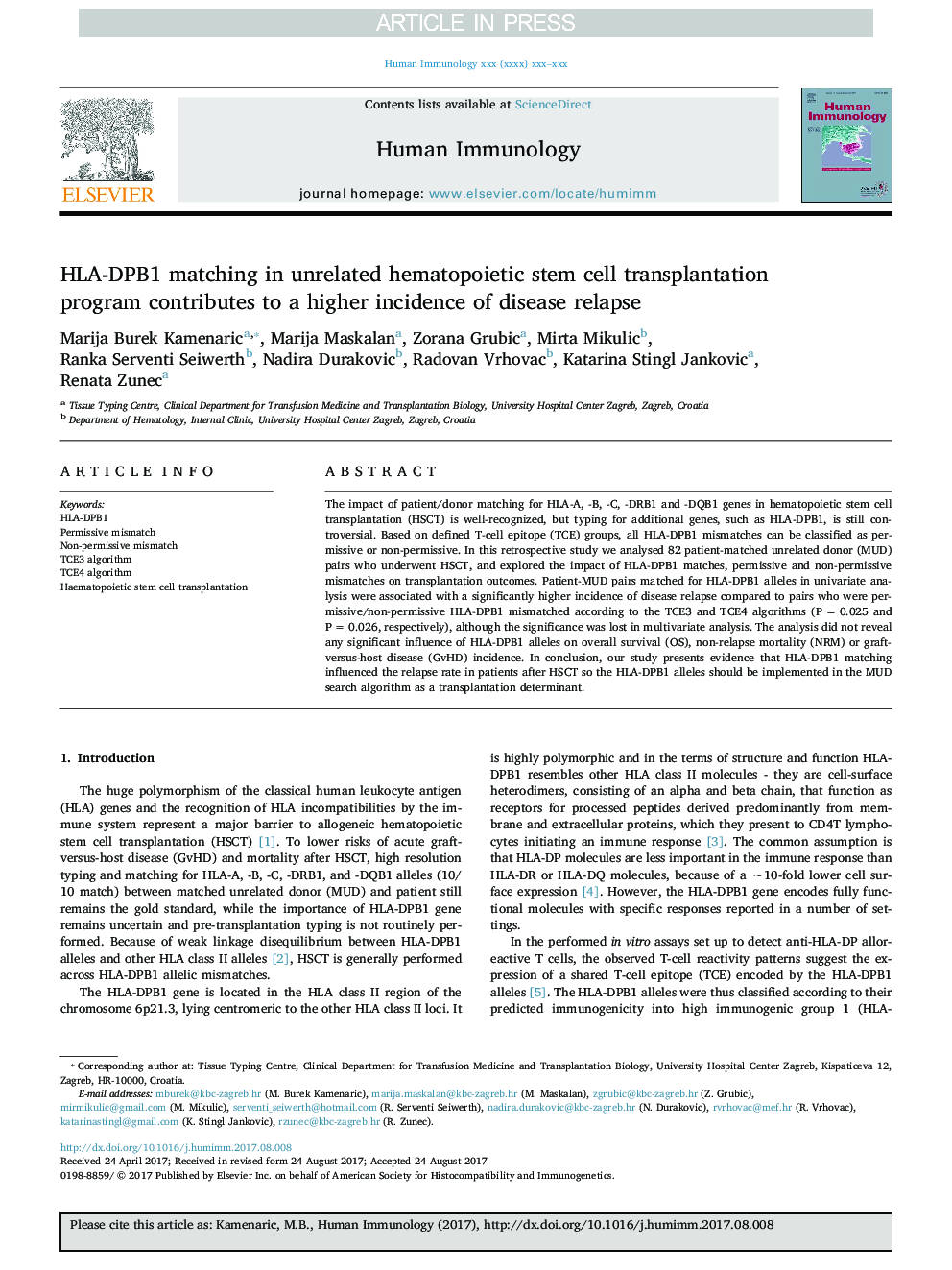| کد مقاله | کد نشریه | سال انتشار | مقاله انگلیسی | نسخه تمام متن |
|---|---|---|---|---|
| 8737711 | 1591372 | 2017 | 7 صفحه PDF | دانلود رایگان |
عنوان انگلیسی مقاله ISI
HLA-DPB1 matching in unrelated hematopoietic stem cell transplantation program contributes to a higher incidence of disease relapse
دانلود مقاله + سفارش ترجمه
دانلود مقاله ISI انگلیسی
رایگان برای ایرانیان
موضوعات مرتبط
علوم زیستی و بیوفناوری
ایمنی شناسی و میکروب شناسی
ایمونولوژی
پیش نمایش صفحه اول مقاله

چکیده انگلیسی
The impact of patient/donor matching for HLA-A, -B, -C, -DRB1 and -DQB1 genes in hematopoietic stem cell transplantation (HSCT) is well-recognized, but typing for additional genes, such as HLA-DPB1, is still controversial. Based on defined T-cell epitope (TCE) groups, all HLA-DPB1 mismatches can be classified as permissive or non-permissive. In this retrospective study we analysed 82 patient-matched unrelated donor (MUD) pairs who underwent HSCT, and explored the impact of HLA-DPB1 matches, permissive and non-permissive mismatches on transplantation outcomes. Patient-MUD pairs matched for HLA-DPB1 alleles in univariate analysis were associated with a significantly higher incidence of disease relapse compared to pairs who were permissive/non-permissive HLA-DPB1 mismatched according to the TCE3 and TCE4 algorithms (PÂ =Â 0.025 and PÂ =Â 0.026, respectively), although the significance was lost in multivariate analysis. The analysis did not reveal any significant influence of HLA-DPB1 alleles on overall survival (OS), non-relapse mortality (NRM) or graft-versus-host disease (GvHD) incidence. In conclusion, our study presents evidence that HLA-DPB1 matching influenced the relapse rate in patients after HSCT so the HLA-DPB1 alleles should be implemented in the MUD search algorithm as a transplantation determinant.
ناشر
Database: Elsevier - ScienceDirect (ساینس دایرکت)
Journal: Human Immunology - Volume 78, Issues 11â12, November 2017, Pages 665-671
Journal: Human Immunology - Volume 78, Issues 11â12, November 2017, Pages 665-671
نویسندگان
Marija Burek Kamenaric, Marija Maskalan, Zorana Grubic, Mirta Mikulic, Ranka Serventi Seiwerth, Nadira Durakovic, Radovan Vrhovac, Katarina Stingl Jankovic, Renata Zunec,